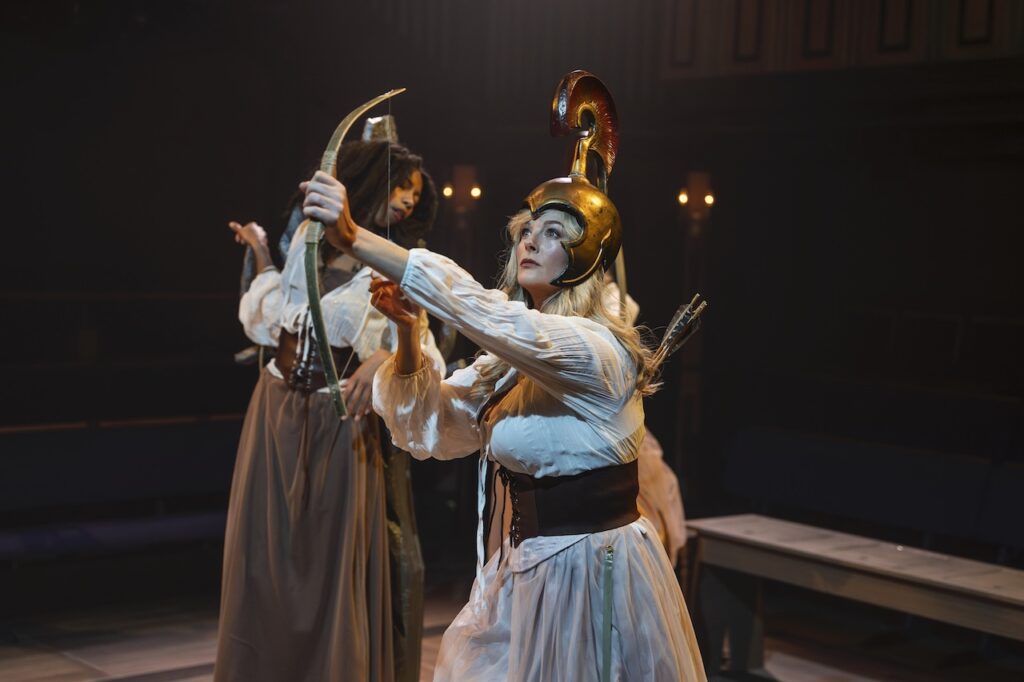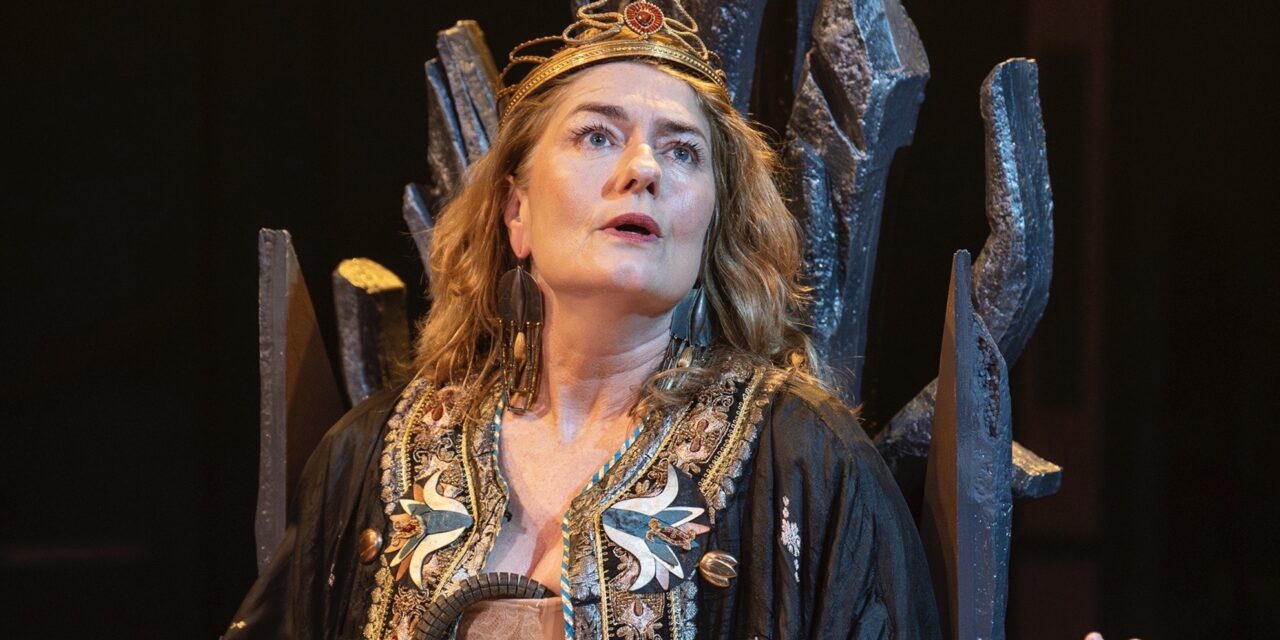
28 April – 3 May
Sometimes – and no one is more disappointed than an honest reviewer – a production which on paper seems to offer much, in performance fails to match up to expectation. So a cast led by the flawlessly talented Anna Chancellor in a play which strikes all the right notes to a contemporary audience would seem to have what it takes. The early years of women legitimately treading the boards after the restoration of Charles II, whilst undoubtedly seminal in terms of the future of theatre in particular and culture in general, were no place for faint-hearts. Women who sought a career on the stage had not only to overcome the general prejudices of the age, but also the much vaunted charge of loose morality.
Ms Chancellor gives us a woman of substance. Married to one of the first theatre managers following the return of theatre to London, Thomas Betterton, she appears as an actress with a command of the stage, complete with sweeping gestures that conveniently end in a tableau, poised to receive the inspection and approbation of an adoring audience – mostly of course men. The other four characters in this all female play by April De Angelis are also pioneers and that is one reason why the play fails to grip. Each character has a story to tell, not least Nell Gwyn (Zoe Brough) and in switching attention from one to the other the audience does not have the opportunity to get drawn into the individual dramas which inevitably remain sketchy. To be painfully brief it is a superficial history lesson with little in the way of dramatic action. Even an attempted abortion scene involving the actress, Elizabeth Farley (Nicole Sawyerr) has little more impact than a tragic anecdote to illustrate the dangers and insecurities experienced by all actresses of the time.
The weaknesses of the plot are not helped by the fact that the pacing is slow; at times it felt like a first run through, added to which the faintest of echoes produced by microphones gave an empty church hall sound to the voices. The other historical characters featured in the play – Rebecca Marshall (Katherine Kingsley) and Katherine Corey aka. ‘Doll Common’ (Doña Croll) – come in for the same brief anecdotal treatment, although Doll is also used as the unsurprisingly cynical narrator.
Not everyone returned to their seats for the second act and one is left with the feeling that this was a rich cake that just failed to rise in the baking.
★★☆☆☆ Graham Wyles, 29 April 2025
Photography credit: Ellie Kurtzz


